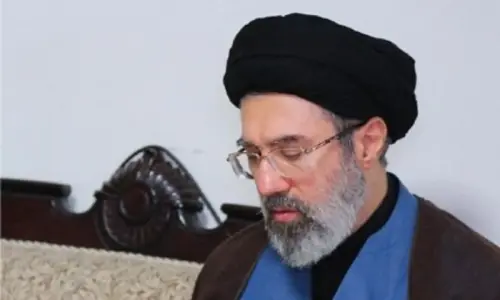ONE of the enduring topics of Muslim sectarian polemics has been the hadith attributed to the Prophet Muhammad (PBUH) according to which he had predicted that his ummah would be divided into 73 sects, but only one would be saved.
All Muslim sects happily claim that their sect is the ‘saved one’ (naji) and the ‘others’ are destined for hell. This hadith, if we were to follow the traditional line of argument, divides the Muslim ummah into two sections: the saved ones and the hell-bound ones.
Few people ask why the number 73, and where it comes from. Luckily, there is now a tendency to see this hadith in a more objective way, beyond sectarian interpretations. There is an attempt to see the sects more in a pluralistic and inclusive light than in exclusive ways. In recent times, attempts have been made to unravel the context of this hadith and examine its implications.
The most frequently cited hadith regarding the 73 divisions of the Muslim faith is reported as: the Jews are divided into 71 sects (firqa), the Christians into 72 sects, and my community will divide into 73 sects (Ibn Majah, Abu Daud, al-Tirmidhi and al-Nisa’i). The hadith also occurs in many other versions as well.
This hadith has two parts: one is the number of sects that are to emerge, and the other the salvation part. Often, it was understood that the 72 sects would be condemned while one would be saved. As opposed to this, we have another version of the hadith which tells us a different story.
Muqaddasi (a 10th-century geographer), according to Roy Mottahedeh (Diversity and Pluralism in Islam), tells us that “72 sects are in heaven and one in hell, according to what he considers is a more sound line of transmission (isnad)”. This shows that there is variation of the hadith reported on the 73 sects.
According to Mottahedeh, Fakhruddin Razi (d. 1209) reports that some have questioned the authenticity of this tradition, saying that if by 72 they mean the fundamentals of religious belief (usul), then they do not reach this number and if they mean the practices (furu), then the number passes this number by several multiples.
The other view of this hadith is that the figure 73 is not meant literally, but is a relative and figurative number, identified because of a context. Mottahedeh gives extensive historical examples wherein the figure was used as a symbolic number. The author says that “70 meant ‘a sizeable number’ and 70-odd meant ‘a sizeable number and then some’ is fairly clear. In many cases, the expressions are meant to be pictorial numbers and not exact ‘head counts’”.
He further adds that 70 assumed the role of a metaphor for numerousness and thus is “rhetorically significant”. The author cites a hadith that says, ‘He who helps a believer in distress, God will remove him from 73 afflictions’. Here again, probably what is meant is a generous indication towards God’s reward. Religious language is often couched in symbolic language and not meant to be literally understood.
Two famous personalities, al-Baghdadi (d. 1037) and al-Shahrastani (d. 1153) give different accounts of the sectarian numbers and their backgrounds. There is no standard explanation; each, according to his background and time, has highlighted the sectarian beliefs and backgrounds as they understood them in their times.
Talking about the quarrelling of sects, Hafiz (d. 1389-1390), a great Muslim poet, says, “Forgive the war of the 72 sects; since they did not see the truth they have struck out on the road to fancy”.
Hafiz regards the sectarian quarrels as afsana that preoccupies those who fail to understand the diversity of faith. Similarly, Mowlana Jalaluddin Rumi, according to Mottahedeh, thinks that the “deeper religion is the trans-religious mystery of love of God ... This manifests itself in many (ie 72) ‘madnesses’ and takes the soul beyond the world of being. Ultimately, we not only accept pluralism among Muslims, but among all the mysterious paths of the love of God” (Diversity and Pluralism).
Truth cannot be contained and constrained by communities’ quarrels among themselves. When we step outside the narrow confines of our communities, we realise that there is so much to learn from others. This point is reinforced by Abdul Aziz Sachedina in his remarkable book The Islamic Roots of Democratic Pluralism by demystifying the mystery of different religions and sects, and how Islam views this diversity.
Throughout history, communities have learnt much from each other. Today as well, there is an increasing global trend to learn from and celebrate the diversity of faiths in many ways.
This discussion leads us to the realisation that sectarian numbers and who ‘owns’ the truth are complex issues. We need to look at Muslim diversity with respect, humility, responsibility, and celebration rather than through the prism of sectarianism.
Let there be no bloodshed just because one sect believes and practices its faith in a particular way. All are seeking the truth. The Quran refers to this positive outlook in many verses and an example is: “… if thy Lord willed, all who are in the earth would have believed together. Wouldst thou (Muhammad PBUH) compel men until they are believers? It is not for any soul to believe save by the permission of Allah. He hath set uncleanness upon those who have no understanding” (10:99-100).
The writer teaches Histories and Cultures of Muslim Societies at a private university in Pakistan.




























